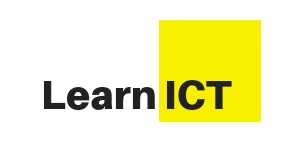Lifelong learning refers to the practice of continuously developing new skills or knowledge throughout an individual’s life. It’s not limited to formal education like school or university; rather, it involves a commitment to learning through personal development, professional experiences, or even hobbies. The concept emphasizes that learning doesn’t stop after reaching a certain level of education or age, but should be an ongoing process that allows individuals to grow, adapt, and thrive in various aspects of life.
The Benefits of Lifelong Learning
Lifelong learning offers numerous benefits that positively impact both personal and professional life. On a personal level, it helps improve cognitive function and keeps the brain engaged. By constantly acquiring new information, individuals can prevent cognitive decline and stay mentally sharp. Professionally, lifelong learning enhances career prospects by allowing individuals to stay competitive in a rapidly changing job market. By constantly upgrading skills and knowledge, one can open doors to new job opportunities, promotions, and career shifts.
Additionally, learning new skills fosters greater self-confidence and a sense of achievement. The confidence that comes with mastering new tasks can translate to improved mental well-being and a greater sense of purpose in life. Lifelong learners are often more adaptable and resilient, as they are accustomed to navigating change and overcoming challenges.
How Lifelong Learning Shapes Career Growth
In today’s fast-paced world, industries and technologies are constantly evolving. Lifelong learning is crucial for career growth as it ensures individuals remain relevant in their fields. By staying updated with new technologies, industry trends, and emerging skill sets, lifelong learners are better equipped to handle workplace changes. Whether it’s through online courses, workshops, or networking, investing in continuous education can provide individuals with a competitive edge, making them more valuable to employers.
Moreover, lifelong learning encourages individuals to pursue new opportunities and career paths. In a world where job roles can become obsolete, learning new skills offers the flexibility to pivot to new industries or roles that require different expertise. For instance, someone with a background in marketing might learn coding or data analysis to transition into a tech role, diversifying their career options.
Lifelong Learning and Personal Development
Lifelong learning is not just about improving career prospects—it’s also about enriching personal life. Engaging in continuous learning helps individuals to explore new areas of interest, whether it’s picking up a new language, learning an instrument, or understanding a new field of science. It allows individuals to broaden their horizons, improve their critical thinking, and develop a well-rounded perspective on the world.
For older adults, lifelong learning offers an opportunity to stay intellectually active and socially engaged. Many retirees turn to learning as a way to stay connected with their community and maintain a sense of purpose after retirement. This type of learning helps keep the mind sharp, fosters social interaction, and can even enhance one’s overall quality of life.
Barriers to Lifelong Learning and How to Overcome Them
Despite the numerous benefits, some barriers to lifelong learning exist, making it difficult for people to engage in continuous education. Time constraints are one of the most common challenges—many individuals find it difficult to balance work, family, and personal commitments with learning. However, online learning platforms, flexible study schedules, and bite-sized educational resources can help overcome this obstacle. For instance, short online courses, podcasts, or educational videos can be consumed during free time or on the go.
Financial limitations can also pose a barrier to formal learning. Fortunately, many organizations and institutions offer scholarships, free courses, or affordable online programs, making education more accessible. The key is to remain motivated and persistent, understanding that the investment in learning is an investment in one’s future.
Lifelong Learning in the Digital Age
The rise of technology and the internet has revolutionized the way we approach learning. With the click of a button, anyone can access a vast array of online courses, webinars, tutorials, and educational tools. From coding to art history, digital learning platforms offer an unprecedented range of subjects and resources that cater to diverse learning needs. Apps, websites, and platforms like Coursera, LinkedIn Learning, and Duolingo make learning accessible to anyone, anywhere, anytime.
In addition, the digital age has transformed the way we network and collaborate with others. Social media platforms and online communities offer opportunities for learners to connect with like-minded individuals, exchange ideas, and gain valuable insights. This interconnectedness has made lifelong learning more collaborative and diverse, enabling individuals to learn from people around the world.
Making Lifelong Learning a Habit
To make lifelong learning a part of your daily routine, it’s important to approach it with a mindset of curiosity and self-discipline. Start small by setting achievable learning goals. Whether it’s reading a book a month, taking a course, or practicing a new skill for a set amount of time each day, consistency is key. Incorporating learning into your routine will make it a natural habit and a fulfilling part of your life.
Incorporating learning into your everyday activities can also be a helpful strategy. For example, listening to educational podcasts while commuting or attending seminars during work breaks can maximize your learning opportunities. By integrating learning into your daily life, it becomes easier and more sustainable to continue pursuing education for personal and professional growth.
Lifelong learning is an invaluable tool for growth, whether it’s for advancing a career, enriching personal life, or adapting to the demands of the modern world. As we continue to evolve in a rapidly changing environment, making learning a lifelong commitment will help individuals remain adaptable, curious, and engaged. The pursuit of knowledge is not only an investment in career prospects but in self-improvement, well-being, and the ability to thrive in an ever-changing world. For those interested in expanding their knowledge in specific fields, courses like WSET Level 1 can offer a great starting point for those pursuing a deeper understanding of wine, and learning can continue to enrich your life in countless ways.





